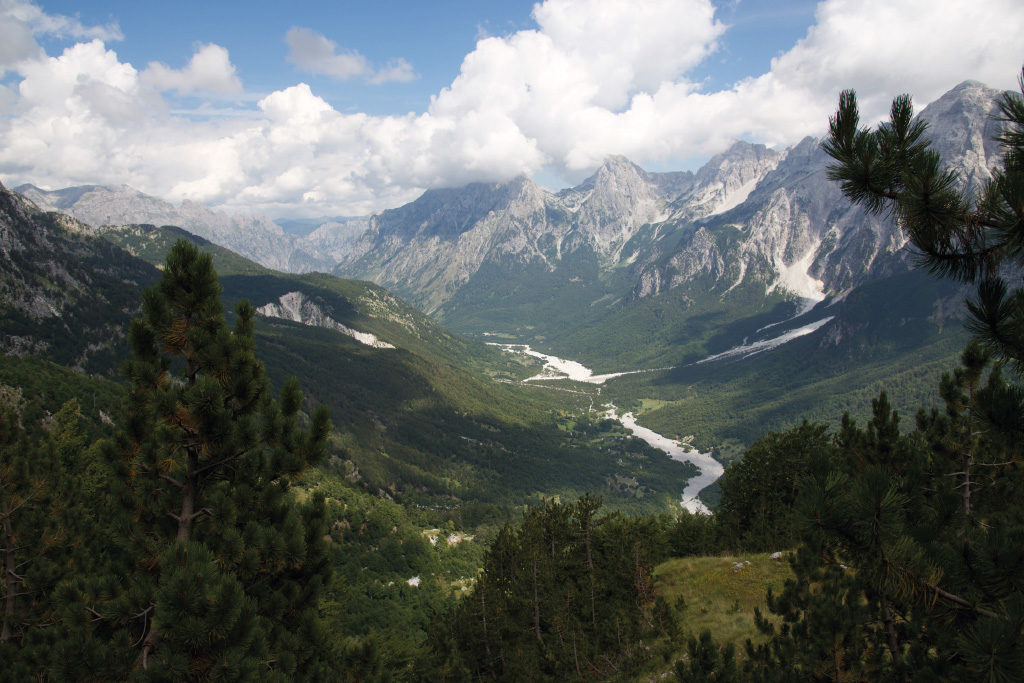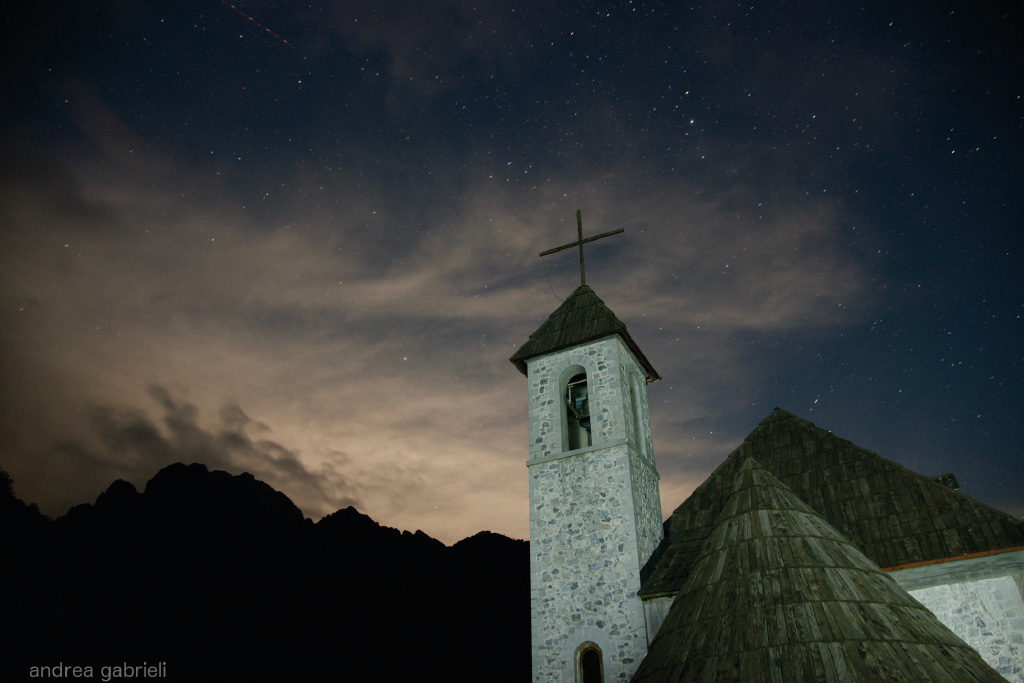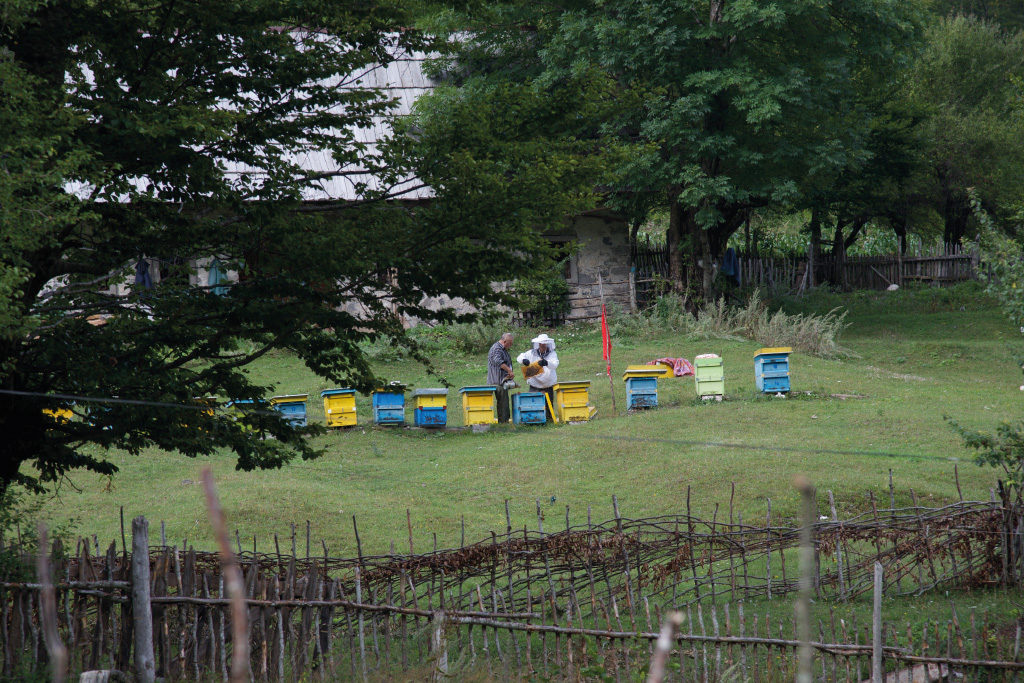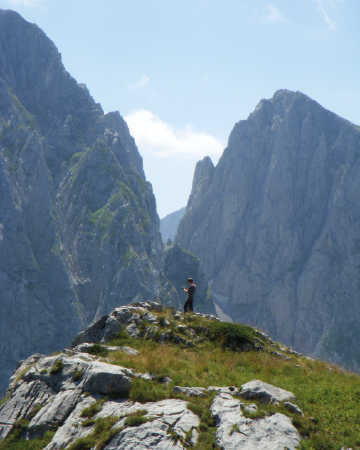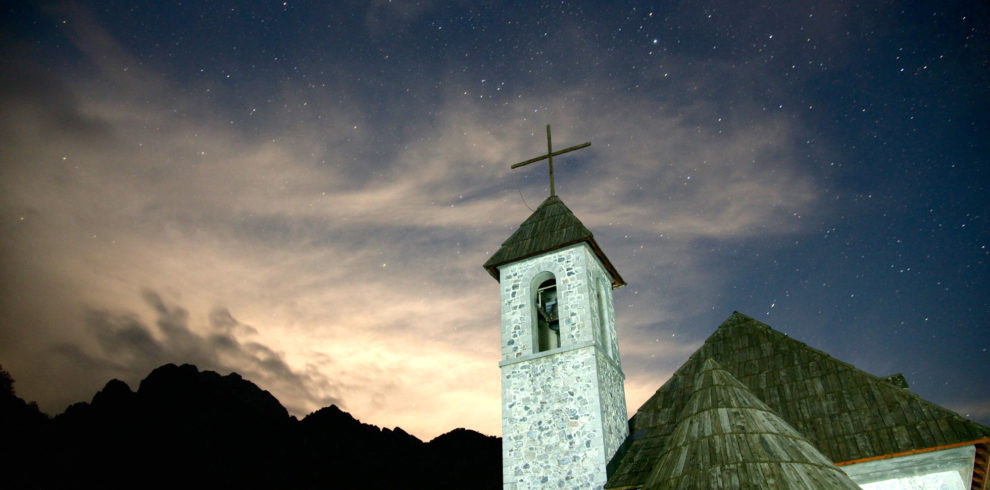Visit with us the Alps and the most sharped and unexplored mountains of the Western Balkans. You will hike mountains’ paths where travelers and merchandise caravans have travelled through centuries, and nowadays still serve to shepherds and their livestock. Along the paths will be visited glacial lakes with crystal clear waters, forests, picturesque isolated villages and other marvelous places. The walks go through the valleys of Vuthaj, Theth and Valbona, which you will be hard to forget!
Itinerary
At the peak we can see a view like coming from a fairytale. In front of us we will have the mountains of Karafil and Langoj. From Trojan we will get the slope toward the peak of Vajusha (2005m), where it is found also the border with Albania. After we conquer the top we will start descending to Guci, where we will sepnd the night at the guesthouse.
After a short vehicle trip to Ropojan area (1200m amsl), starts the trail from Gjeshtari Karst Lake, the end of which is also the border between Montenegro and Albania, and is possible to see the border pyramid. The walk continues through a forest until in front appears the impressive Rrunica Field (1500m amsl), continues toward Peja Pass (1800m amsl) and visit along it the iced lakes. From there starts the descent to Theth village in a historical caravan path, used from inhabitants and merchants in medieval times. The path follows along a coniferous forest and mountain slopes to reach Theth village (820m amsl) where will be spend the night in a guesthouse.
Departing from Theth (820m amsl) in direction to Valbona (920m amsl), the trail acrossed a wonderful forest, through which will be reached the Valbona Pass (1898m amsl) where will open the majestic view of Albanian Alps and see clearly the beauty of Valbona and Theth Valleys. After a refreshment starts the descending through an historic path to reach another forest, arrive in Ragam village, and continue to Valbona village, spending the night in a guesthouse.
The Abania region's Koman Lake is a fascinating site for people seeking to take in the natural beauties of the world. Visitors can fully appreciate the region's breathtaking nature by participating in a variety of activities such as camping, canoeing, sailing, and fishing.
The area's lush valleys and the lake's crystal-clear waters make for a beautiful setting for anyone looking to explore, while the nearby mountains serve as a gorgeous backdrop. Many bird, fish, and plant species call the lake home; tourists frequently witness them flying, swimming, or relaxing in the water.After getting off the raft with the car, we will go to the Mërizi i Zana agrotourism, where we will enjoy the traditional foods of the area. After lunch, head to Tirana, we will stay at the hotel
This day is a transfer, after breakfast we can visit Tirana and transfer to the Airport.


